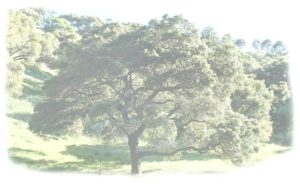Written by Delonda Anderson
Editor
A few years ago, I attended the James Agee Conference for Literature and Arts at Pellissippi State Community College in Knoxville, Tennessee. The event broke into several workshops and sessions that mostly focused on new Appalachian talent with a smattering of old genius. During the last session, I was fairly troubled when discussion surrounded the portrayal of Appalachians and the region. I found a common theme emanating from most of my fellow Appalachian attendees. They seemed to eschew their “Appalachian-ness.” I recognized this type of scorn because I was once there myself. One attendee said,

“They always have to show us with junk in our yard. And not everybody has washing machines on their front porch. I know we never did.”
My posture stiffened and I felt the familiar shock of ignominy flash wildly through my nerves. I had to interpose and confess that my family did have a washing machine on the porch and that I was proud of the way I grew up. What I didn’t divulge were the details. It was a wringer washer and we were overjoyed to own the antiquated machine because we no longer had to scrounge up change for the laundry mat. Oddly enough, it presented many days of bonding time with my mother. She fed the wringer while I pulled the clothes from the other side and allowed them to fall into the basket. Then, she took the basket, gave me our bundle of clothespins, and we trekked up the hill to hang our garments in the sweet mountain air. You might wonder why the appliance was on the porch in the first place. I have a simple one-word answer: room.
Another attendee was mortified that Appalachians seem to be painted with the broad brush of drug addiction.
“It’s like Appalachians all have drug problems. We’re not all addicted to hydrocodone.”
Then, in a twisted stream of logic, this attendee further regaled the audience with stories about his neighbors who looked rough, lived rowdy, and did drugs but were, surprising to him, nice people.
As I listened, I remembered other conversations I’d had and it seemed to me that, as Appalachians, we either didn’t know or hadn’t fully accepted our own culture. We cannot seem to embrace our “warts and all.” Why? Well, for one thing, shame is powerful. We are made aware of our “otherness” and see ourselves through other peoples’ versions of us. I was once invited to a couple’s home who’d recently moved to Appalachia. He was literally a rocket engineer and his wife was a community volunteer. They thought I had just about the best, most intelligible accent they’d ever heard in the mountains. They were delighted that they could understand me. He nudged me with his elbow and questioned,
“Chee chet?”
My eyebrows furled. I was quite perplexed and told him I didn’t understand him.
“You know,” he said with another elbow nudge, “Chee chet? Did – you – eat – yet?”
And he guffawed the rest of the day. I never went back – not because I was ashamed of the way I spoke. I was incensed at their act of trying to shame.
Another reason Appalachians cannot seem to fully embrace their culture might be because we have sparse authentic representation and even less academic history about ourselves. Hundreds of years of denigration, coupled with isolated living, have triggered a hesitation to uncover our talents. Our authenticity has been fleeced and replaced with faux depictions. And history is left to our kinfolk, our masterful storytellers who pass down facts mixed with a dash of legend. Only, some stories are left unsaid or lost forever.

Appalachians have so much to claim as their own. As a matter of fact, what others might think ugly or backward or unsophisticated, are, in reality, coveted notions across the nation. Sometimes these notions take the form of “movements” or “activism.” We have movements now in our country – simple living, minimal living, low waste living, sustainable living – for which one could argue Appalachians were the forefathers and foremothers. What is now considered in vogue has been practiced for centuries in Appalachia and we are still somewhat vilified for it. Our simple lives, our gardening, our “making do,” our slow living, our living minimally or, on the other side of the spectrum, living maximally, have been lambasted and ridiculed. The current low waste movement has a philosophy of five R’s: Refuse, Reduce, Reuse (or Repair), Recycle, and Rot. Appalachians are masters of this philosophy. We refuse because we can’t afford. We reduce because we cannot buy. We reuse or repair because we respect what we have. We recycle and up-cycle like a mother. We take our scraps and feed them to our animals – our dogs, our hogs, our chickens, our goats – or dig and drop it in the earth, together with paper and anything else that rots.
Truly, ingenuities among Appalachian people are astounding. A man can take this metal piece and mold it to that metal piece, then graft on a handle from an old whatever, and he has himself a sickle. A woman can take apart a sweater and reuse its yarn to knit a good winter scarf or a toboggan (You may recognize the item as “beanie” or “skull cap, but I was taught it’s a toboggan.). A woman might tell you what kind of herbs to use for such and such ailment. She might tell you it’s used in a tincture, a poultice, a tea, or an oil. Hell, she might even do it all up for you. Is your jalopy acting up? Well, take it to old neighbor Dan down the dirt road and he’ll see what he can do. Why, he has parts from this old truck here in the yard. Pretty soon, you’re both working on the vehicle, having a good old time, drinking fresh spring water, or, better yet, Mason jar spirits.
So – why Appalachia Bare? Well, after I left the Agee Conference, I thought to myself: Appalachians need a positive venue of their own to showcase literary and artistic talents. Homegrown sites where we can express collective creativity, heritage, and history are sparse. And we could be looking at the threshold of another Enlightenment. We’re already in a new Information Age akin to the newspapers and penny presses at the birth of the twentieth century. Like then, society is still trying to grasp it all. We have stories to tell. We have talents to unfold. We have a communal resource to showcase our brilliance and achieve recognition in this Techno-Info-Internet Age. If we quash it, all those ideas and inspirations will be forgotten. So, I spoke to Edward Francisco and we devised a plan. We created Appalachia Bare as an avenue for Appalachians to showcase creativity, uniqueness, and ability. We want Appalachia Bare to be a welcoming source where the nation can come and see the realness of us.
I would be remiss if I didn’t acknowledge the warts and ugly. For myself, I believe beauty is found anywhere – even in what others might deem ugly. When disapproving onlookers drove by my house and saw that wringer washer, I doubt they considered the pleasant bonding times between a mother and her little daughter. They probably never contemplated the warm, radiant sun and gentle, mountain breezes working in tandem to breathe newness into old clothes. Further, for a child, the woods offered a plethora of delightful experiences. Doubtless, those same persons didn’t consider the birds fluttering from clothesline to tree, the squirrels swirling and looping up wise old oak trees, and the forest’s choir singing, quivering, croaking, belting out tunes of joy.


Delonda, thank you for your perspectives and emphasis on the positives that outsiders fail to grasp about southern Appalachia. Appalachians are rightly pushing back against false narratives and stereotypes. I’m grateful for a forum where those of us from Appalachia, regardless of where our washing machines might reside, can contribute our voices.
Thank you, Jim. I’m so happy you’re here and expressing your voice. I love your witty edge and whimsical images. You capture so much of our goodness – in excellent writing and exceptional photography.
Delonda, I enjoy your writing very much, and I think what you and Professor Francisco have done with this site is remarkable. Although not Appalachian (I was born in Texas and raised in Montana), there is much here that resonates with me. I eagerly look forward to every update.
Thank you, Trent. We delight in the shining talent of every person who submits here – like your own stunning images! You are absolutely right: A person doesn’t have to be born in Appalachia to feel connected to her natural world and unique culture. I believe a person who plants here for a time melds into the Appalachian makeup and contributes to our collective character. That’s especially true for people like you who love being here. My husband also shares your history with Appalachia. He wasn’t born here but he feels a great bond to this land. I reckon he might feel one with me, too.